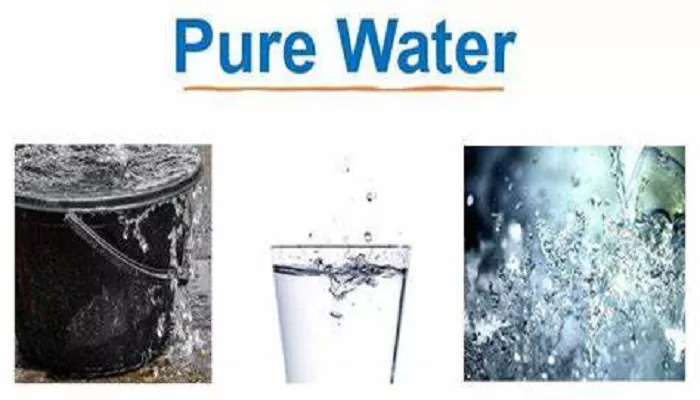Water is the very essence of life.
The normal functioning of our bodies simply cannot occur without water. In today’s market, filled with a vast array of products, for those who struggle with making decisions, choosing what type of water to drink has become a complex issue. Pure water, mineral water… so, what are the actual differences between pure water and water with minerals?
Pure water is defined as water that contains no minerals or any other impurities. Typically, we obtain pure water by subjecting tap water to a series of processes including coarse filtration, fine filtration, reverse osmosis, and disinfection. Reverse osmosis, in particular, utilizes a semi – permeable membrane with a pore diameter similar to that of water molecules. Pressure is applied to filter the water, allowing water molecules to pass through while preventing substances with a diameter larger than water molecules from passing through the pores of the semi – permeable membrane.
The mineral – containing water available on the market is mainly categorized into two types: mineralized water and natural mineral water. Both are mineral – containing, but there is a key difference. Mineralized water is produced by adding mineral components to purified and filtered water in a specific ratio. Natural mineral water, on the other hand, is extracted from underground rock layers. It has undergone initial sedimentation, filtration, and disinfection processes, and the types and amounts of minerals it contains are the same as those in the underground rock layers. Minerals commonly found in water include calcium, magnesium, potassium, sodium, lithium, strontium, and so on.
These mineral elements are crucial for the normal growth and development of the human body and for maintaining good health. Some animal experiments have even shown that rats that drink pure water for an extended period excrete more electrolytes from their bodies and are at risk of developing cardiovascular diseases. This has led to some online claims suggesting that drinking purified water is bad for health and that people should opt for mineral – containing water.
However, let’s consider how much mineral supplementation we can actually get from drinking water. Generally, the zinc and iron content in 1000 milliliters of water is less than 0.2 milligrams. Adults need to supplement 10 – 15 milligrams of zinc and 12 – 18 milligrams of iron daily. Even if a person drinks 5 liters of water per day, the mineral components obtained from the water would be less than 1 milligram, which is negligible compared to the body’s requirements.
In fact, in addition to drinking water, the food we consume can also supply us with minerals. With the increasing variety of daily diets, our food sources are extremely rich. Each type of food contains its own unique set of minerals. We can surely meet our body’s mineral needs through a diverse diet.
Related topics


